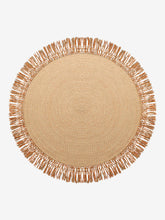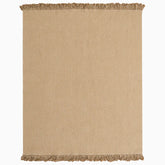Everything you need to know about nylon fibre area rug

The pros and cons of nylon carpet fibres are detailed below:
Pros
Durability
Resilient: Nylon is highly resilient and can bounce back from foot traffic and heavy furniture without being permanently crushed or matted.
Durability: Nylon carpet is known for its durability, maintaining its appearance and performance for years, even in high-traffic areas.
Stain Resistance
TREATMENT PROTECTION: Nylon can be treated with a stain-resistant treatment that makes it highly resistant to spills and stains.
EASY TO CLEAN: Most stains can be removed with basic cleaning methods, and treated nylon fibres prevent spills from going deeper.
Versatility
Versatile: Available in a wide range of colours, patterns and textures, the design is flexible and can be matched to any décor.
Adaptability: Thanks to its performance characteristics, it is suitable for a wide range of environments, from the home to the office.
Maintenance
Low Maintenance: Regular vacuuming and occasional professional cleaning are usually enough to keep nylon carpets looking new.
Anti-allergy: Nylon fibres are treated to resist dust and allergens, making it the perfect choice for allergy sufferers.
Mould Resistant
Moisture Resistant: Nylon fibres prevent the growth of mould and mildew, which is good for damp environments or areas prone to moisture.

Disadvantages
Cost
Higher price: Nylon is generally more expensive than other synthetic fibres such as polyester and olefin, but is still cheaper than natural fibres such as wool.
Treatment Costs: Additional anti-stain treatments can add to the total cost.
Static electricity
Static build-up: Nylon fibres can produce static electricity, which can be uncomfortable and annoying. This can be mitigated by anti-static treatment, but is still a consideration.
Chemical Sensitivity
Bleach Sensitivity: Nylon can be sensitive to certain chemicals such as bleach, which can cause discolouration or damage to the fibres.
Cleaning Product Restrictions: Care needs to be taken with the type of cleaning products used to avoid damaging the fibres.
Colour Fading
Sunlight Exposure: Prolonged exposure to direct sunlight can cause nylon carpets to fade. This can be mitigated by the use of UV protection treatments or curtains.
Environmental Concerns
Non-biodegradable: Like many synthetic materials, nylon is not biodegradable, which raises concerns about its environmental impact when disposed of in landfills.
Production Footprint: The production of nylon involves petrochemical and energy-intensive processes, which can have an impact on the environment.
Summary.
Nylon carpet fibres are popular in a variety of applications because of their significant advantages in terms of durability, stain resistance and versatility. However, higher cost, potential for static electricity, chemical sensitivity and environmental concerns are important factors to consider when choosing nylon carpet. Weighing these pros and cons will help you decide if nylon carpet is right for your specific needs.














Leave a comment
Please note, comments need to be approved before they are published.